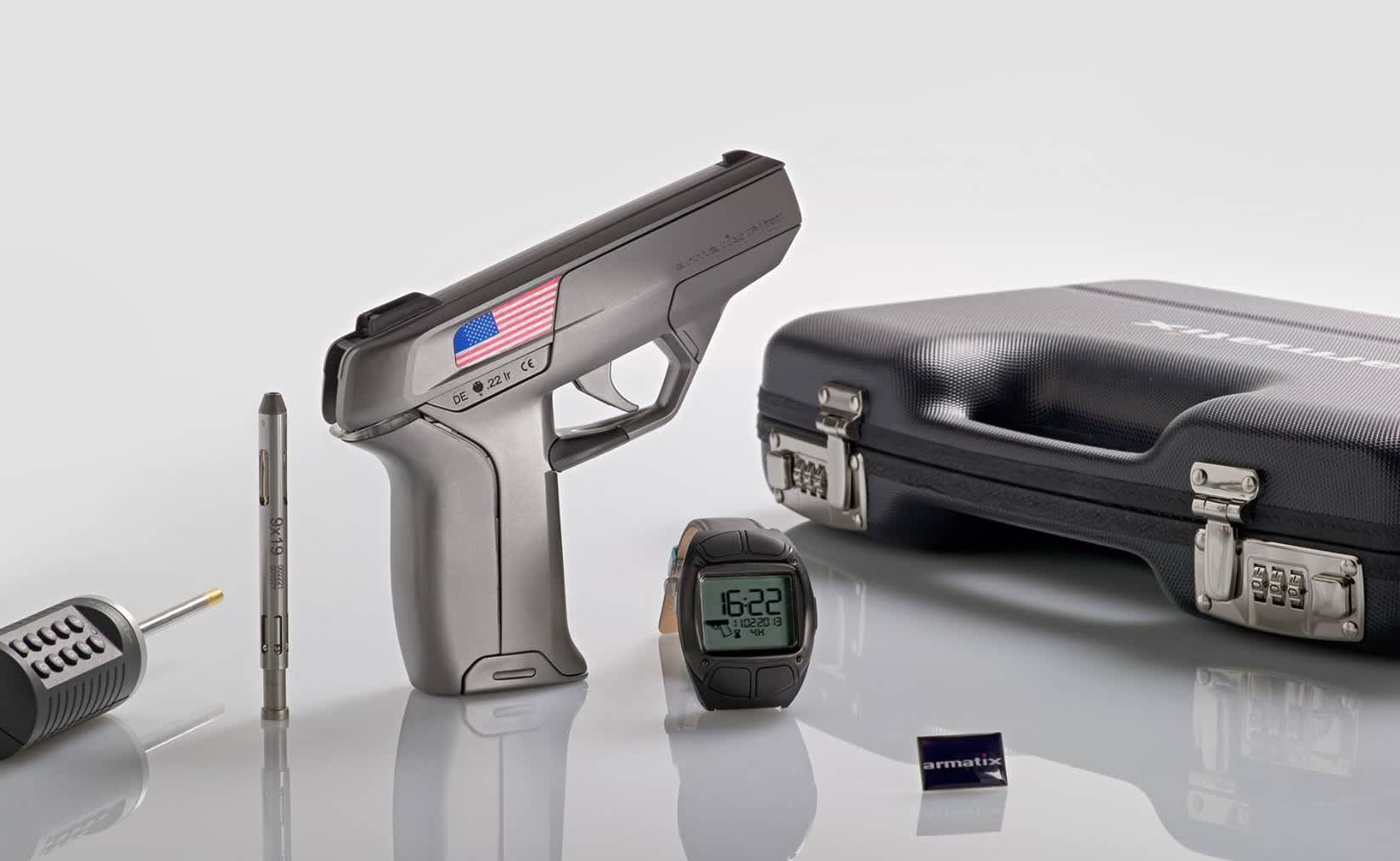New Jersey Lawmakers Propose Rehaul of “Smart Gun” Law
OutdoorHub Reporters 11.17.15

It has been nearly 13 years since New Jersey legislators passed the controversial Childproof Handgun Law, or the so-called “smart gun” law. Approved in December 2002, the law states that if a personalized handgun—a firearm that can only be fired by its owner—is available for retail purchase anywhere in the country, then in three years no New Jersey firearms manufacturer or dealer could sell anything other than personalized handguns.
The law was criticized by Second Amendment advocates and gun owners since it would mean massive changes if smart guns ever came to market. Until recently, it appeared that smart gun technology was still years away, but new tech firms like Amatix are making great strides in producing personalized firearms. Many New Jersey gun owners now worry that the state is on the verge of enacting the law. In a strange twist, the very lawmakers who supported the Childproof Handgun Law are now calling it to be revised.
The author of the 2002 law, Senator Loretta Weinberg (D-Bergen), recently introduced a bill that would replace the law with a new version that would no longer force New Jersey firearm dealers to sell only smart guns, but will require them to stock at least one type of personalized firearm in their inventory. Weinberg said that she introduced the bill in response to the staunch opposition of smart gun development and, in some cases, “intimidation” of stores that stocked them.
“Remember this bill change comes because of the intimidation and threats against some store owners who wanted to sell a certain ‘only the authorized owner can fire it gun!’ If the threats and intimidation had not happened we might not be talking about such laws,” Weinberg wrote on her Facebook.
In 2014, a gun shop in California found itself the target of protests after it displayed Armatix iP1 smart guns in the store. The semiautomatic .22 LR pistols were considered a personalized firearm since in order to function, a user must be wearing a watch with an RFID chip within 10 inches of the gun. Although the store denied ever stocking the firearm, many gun owners were worried that displaying the smart guns would be enough of a precedent for New Jersey to enact its Childproof Handgun Law, leading to requests—both civil and not so civil—for the store to remove the guns. Gun rights advocates argue that smart gun technology is still untested, unreliable, and can even be dangerous in certain conditions. Perhaps more importantly, they see New Jersey’s law as the strictest kind of gun control.
“Our message is simple: If you want this technology to develop, take the mandates out,” Scott Bach, executive director of the Association of New Jersey Rifle and Pistol clubs told the Senate Law and Public Safety Committee on Monday. “Take government hands off the process and let the technology develop naturally. Let’s see if there’s a market.”
According to NJ.com, Weinberg and Bach had a testy exchange of words during committee hearing. Bach argued that lawmakers should allow the technology to continue developing organically without government interference. In response, Weinberg claimed that the gun industry is standing in the way of that development.
Both the National Rifle Association and National Shooting Sports Foundation have said that they are not not opposed to smart gun technology, but see any law mandating their use as a violation of the Second Amendment. Gun advocates are wary that the new bill will pave the way for stricter laws in the future, even if it seems less restrictive than the current one on the books.
“If we can limit the use of guns by those who are not the rightful owner, and prevent the loss of more lives to gun violence, it is our responsibility to do so,” Weinberg told NorthJersey.com. “New Jersey’s Childproof Handgun Law was revolutionary and has been successful in facilitating the development of ‘smart guns.’ The advancement of technology has not moved as fast as we would have liked, but we cannot give up on common sense reforms that will support this effort.”
The bill was approved by Senate Law and Public Safety Committee on Monday.

